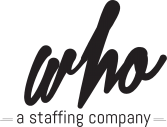The Great Job Resignation & What it Means for Businesses
The workforce dynamics that a year ago found many employees concerned over job security have shifted significantly with many U.S. workers quitting their jobs and looking for better opportunities and better pay.
It’s being called “The Great Resignation,” a wave that is posting numbers the U.S. Labor Department hasn’t seen in more than two decades. In April, according to the department, 2.7 percent of U.S. workers were leaving their jobs, up from 1.6 percent the same time last year. This contributed significantly to the number of jobs currently open in the U.S., which is now estimated at 9.3 million.
With the balance of power shifting, many business owners and employers are analyzing what this shift means to their organizations. What does a business do to retain employees? What is the impact to the bottom line if higher wages and better benefits are what it takes to stop the talent from walking out the door?
Are the numbers really that bad?
Labor analysts and human resources experts are busy tallying the numbers. A survey of 2,000 workers conducted in March by Prudential Financial found that 25 percent said they planned to look for a new job.
A study by the University of Utah health system of its hospitals and clinics last August showed that 21 percent of its employees participating in the study were considering leaving the workforce.
A similar study by Morning Consult earlier this year found 26 percent of healthcare workers are considering leaving their jobs with 14 percent considering leaving the profession altogether.
Business Insider reported that 5.6 percent of restaurant workers quit their jobs in April, with a record 1.34 million job openings in the industry.
More than half a million retail workers also gave notice in April, more than any other industry, with most employees demanding better pay and working conditions.
Why the mass exodus?
While experts point to the pandemic as the underlying reason for so many people leaving their jobs, they say the specifics are more complicated. After 18 months of workforce upheaval, some workers are re-evaluating the role their jobs play in their lives.
“People have had a little more space to ask themselves, ‘is this really what I want to be doing?’” University of Michigan economist Betsy Stevenson, a former chief economist at the Labor Department, told Axios. She went even further in her assessment during an interview with New York Times columnist Ezra Klein when she called today’s climate the “Take This Job and Shove It” economy.
Yet for other workers, it’s about seizing an opportunity. With so many open jobs, some workers see a chance for better pay or more responsibility. And there is the “I want to work from home but my boss won’t let me” or the “I miss the office but now we’re going hybrid” factor that is playing into many decisions to quit.
It’s a new world for many businesses, experts say, and some workers don’t like what they see. “A lot of people who want to go back are finding that the office they come back to is not the office left behind,” Texas A&M marketing professor Anthony Klotz told Axios.
What can business owners do?
Many executives, owners, and managers are trying to get ahead of any employee exits by offering promotions and bonuses. Human Resources managers are shoring up their benefits packages – healthcare, more vacation days, and even stock options. And many job postings today include signing bonuses.
According to Harvard Business Review’s report on Citrix’s Work 2035 project, any plan to help retain employees must include these key elements:
Employees want flexibility and options
Numerous studies are showing that workers searching for a new position will look for flexibility in hours and location – such as living outside urban areas and working remotely.
Employees want to be valued
Productivity shouldn’t be about output, but more about outcomes, the Citrix study showed. More than 80 percent of workers say they want to be measured for the value they deliver and want the space and trust to be productive.
Employees believe diverse teams work best
Most workers feel diversity among employees provides the best opportunity for success and want to be a part of an organization where that is a priority.
Employees want ways to grow through learning and training
Study respondents said they believe they will need to improve skills or acquire new ones to succeed in their jobs and will look for jobs that offer the ability to grow personally and professionally.
Conclusion
These adjustments in the labor market are a sign that the U.S economy is healing, say economists in a recent Reuters poll. But they warned that if companies continue to find no takers for job openings it could hinder further economic growth.
As businesses develop their game plan for hiring and retaining workers, the team at WHO Staffing can offer managers expertise in finding the right candidates and assist human resources professionals in marketing their job openings to a diverse field of workers.
Learn more about our approach to recruiting, and check out our open jobs.



